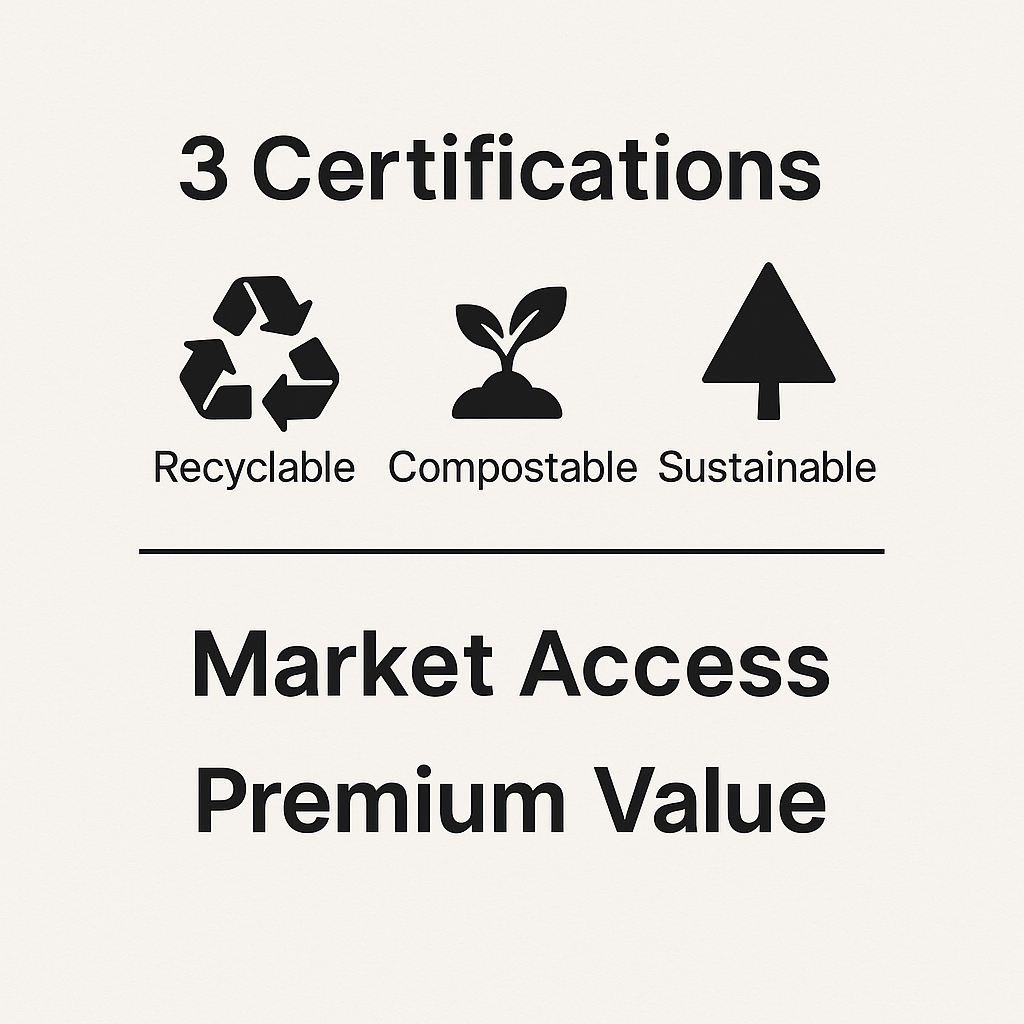1. Interpreting the global plastic ban policy storm and market opportunities
(1) EU-led regulatory upgrade: Focus on the EU Packaging and Packaging Waste Regulation (PPWR). This regulation sets specific recycling rate targets and establishes a full life cycle traceability system. The regulation requires that from 2030, all packaging must meet mandatory “minimal functionality” standards and be optimized in terms of volume and weight. This means that the design of coffee filters must fundamentally consider recycling compatibility and resource efficiency.
(2) Market drivers behind policies: In addition to compliance pressure, consumer preference is also a strong driving force. A 2025 McKinsey survey showed that 39% of global consumers consider environmental impact a key factor in their purchasing decisions. Products with authoritative environmental certifications are more likely to be favored by brands and consumers.
2. Guidelines for Obtaining Critical Environment Certification for Coffee Filter Paper
(1) Recyclability certification:
CEPI recyclability test method, 4evergreen protocol
Why it matters: This is fundamental to complying with the EU PPWR and China’s new plastics ban. For example, Mondi’s functional barrier paper Ultimate has been certified using CEPI’s recyclability laboratory test methods and Evergreen Recycling Assessment Protocol, ensuring its compatibility with traditional recycling processes.
Value to B2B customers: Filter papers with this certification can help brand customers avoid policy risks and meet the requirements of Extended Producer Responsibility (EPR).
(2) Compostability certification:
Mainstream international certifications include ‘OK Compost INDUSTRIAL’ (based on the EN 13432 standard, suitable for industrial composting facilities), ‘OK Compost HOME’ (home composting certification)⁶, and the US BPI (Bioplastics Products Institute) certification (which complies with the ASTM D6400 standard).
Value to B2B customers: Providing brands with effective solutions to address the “single-use plastic ban.” For example, If You Care brand filter paper is OK Compost HOME and BPI certified, making it suitable for municipal or commercial composting facilities, as well as backyard or home composting.
(3) Sustainable forestry and raw material certification:
FSC (Forest Stewardship Council) certification ensures that filter paper raw materials come from responsibly managed forests, meeting European and American market requirements for supply chain transparency and biodiversity conservation. For example, Barista & Co.’s filter paper is FSC certified.
TCF (Totally Chlorine-Free) bleaching: This means that no chlorine or chlorine derivatives are used in the production process, reducing the release of harmful substances into water bodies and being more environmentally friendly. If You Care’s unbleached filter paper uses the TCF process.
3. Core market advantages brought by environmental certification
(1) Breaking down market barriers and obtaining access passes: Obtaining internationally recognized environmental certification is a mandatory threshold for products to enter high-end markets such as the European Union and North America. It is also the most powerful proof of compliance with strict environmental protection regulations in cities such as Shanghai, effectively avoiding fines and credit risks.
(2) Becoming a sustainable solution for brands: Large restaurant chains and coffee brands are actively seeking sustainable packaging to fulfill their ESG (environmental, social and governance) commitments. Providing certified filter paper can help them enhance their brand image and attract environmentally conscious consumers.
(3) Creating a differentiated competitive advantage and securing a premium: Environmental certification is a strong differentiating selling point among similar products. It conveys the brand’s commitment to environmental protection, and more and more consumers are willing to pay a higher price for sustainable products, which creates opportunities for product premiums.
(4) Ensure long-term supply chain stability: As global plastic bans expand and deepen, products using non-recyclable or unsustainable materials face the risk of supply chain disruption. Transitioning to environmentally certified products and materials as early as possible is a strategic investment in future supply chain stability.
Post time: Aug-21-2025







